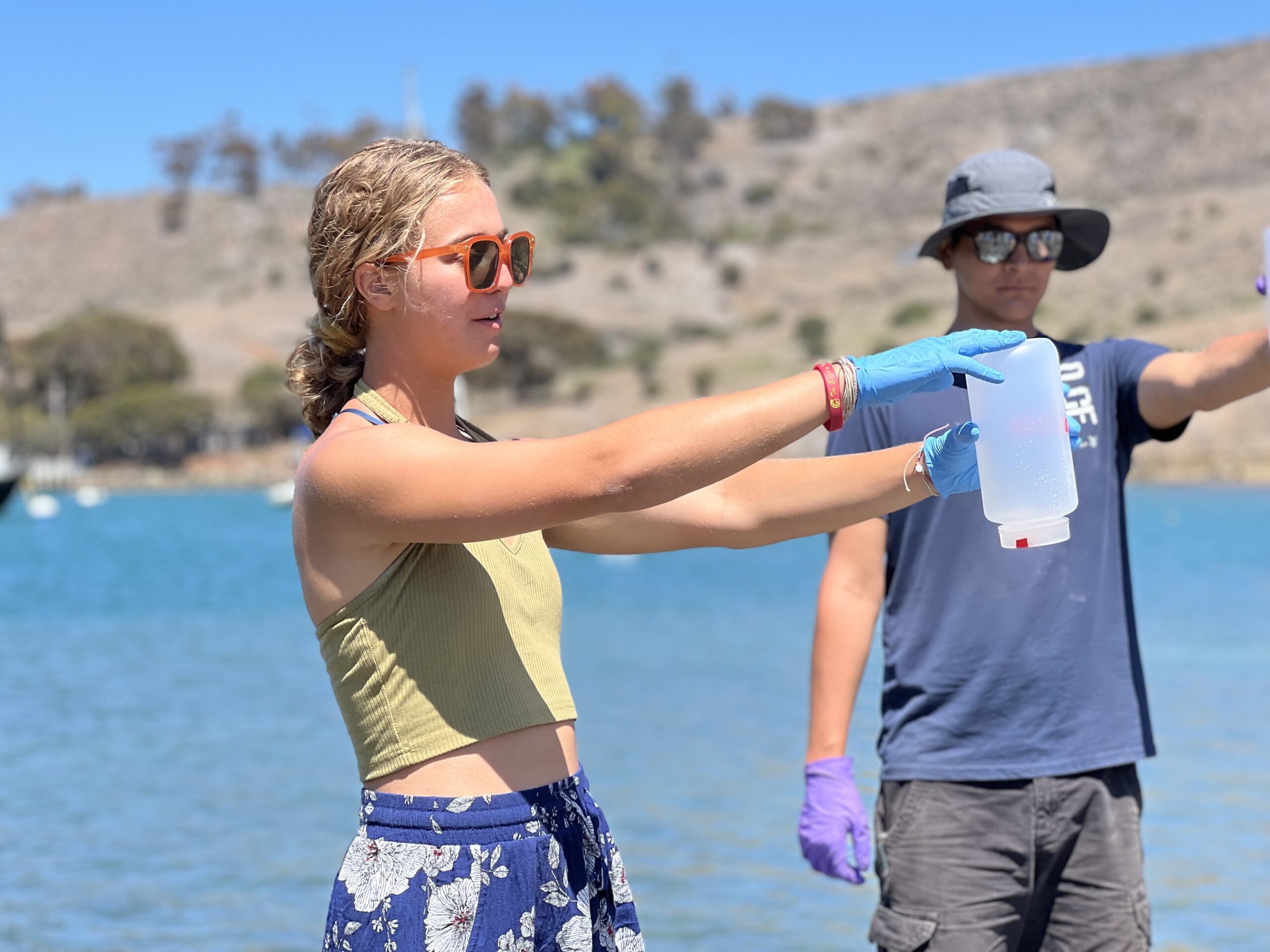Julymester
Connect to the Planet and Your Peers
The Wrigley Institute Julymester on Catalina Island is a unique chance to help the planet while connecting with like-minded peers!
Earn a semester’s credit in just four weeks as you train to become a next-generation environmental leader. All courses and activities take place in our unique, interdisciplinary learning environment at the Wrigley Marine Science Center on Santa Catalina Island.
Registration for Julymester 2024 is now open. Applications are due by Wednesday, April 17 at 11:45 p.m. PT.

How it Works
All students who enroll in one of our designated Julymester courses complete an immersive living-learning experience on Catalina Island. In addition to participating in their core classes, students engage in interdisciplinary activities designed for the whole group. Opportunities include problem-solving sessions, field research, recreation, and special events designed to train students in environmental leadership.
Note: Julymester is included in fall semester tuition, but this experience has out-of-pocket costs associated with room and board on Catalina Island. Significant financial aid is available. Please apply first for SOAR funding, then through the Wrigley Institute aid portal. The Wrigley Institute values diversity and believes that financial need should never be a barrier to a world-class education.
For more information about Julymester generally, read our FAQ or contact Hannah Kiszla (maryansk@usc.edu). For information about specific courses see the Julymester 2024 section below.
Julymester 2024: Environment & Sustainability
We’re excited to announce the theme for Julymester 2024: Environment & Sustainability! Join us on Catalina Island for once-in-a-lifetime, immersive learning and problem-solving experiences centered on the sustainability of the island’s unique water, soil, air, and energy systems.
Dates: Monday, July 15, 2024 through Friday, August 9, 2024
Cost: $1,840 for room and board on Catalina Island (Julymester is included in fall semester tuition)
Application Deadline: Wednesday, April 17 at 11:59 p.m. PT.
2024 Course List
Note: These courses help satisfy core requirements for Environmental Studies majors and minors. Please contact individual instructors for more information.
ENST 320a: Water and Soil Sustainability
Instructor: Scott Applebaum (sappleba@usc.edu)
Both water and soil are integral to human livelihood, and both are currently under threat. This class presents an overview of the issues related to water and soil sustainability including soil development and management, the hydrologic cycle, the cycling of nutrients through both soil and water, soil and water pollution, and food security related to soil and water issues.
ENST 320b: Energy and Air Sustainability
Instructor: Victoria Petryshyn (petryshy@usc.edu)
Everyone who considers themselves an environmentalist has opinions on which sources of energy are “bad” and which are “good,” but what does that mean? How are these forms of energy harnessed by people, especially in the U.S., and how exactly are they good or bad? This course explores those questions, considering “cradle-to-grave” issues ranging from extraction of energy resources from the environment to pollution from emissions and disposal of wastes.
ENGL 499: Writ in Water: A Creative Writing Lab on Catalina Island
Instructor: Katharine Ogle (kathario@usc.edu)
This course is designed to immerse students in the practice and discussion of creative writing in a marine context. For four weeks, we will live and write on Catalina Island. Classwork includes but is not limited to: whale-watching, tidepooling, poetry recitations, guest lectures from professional scientists and poets, film screenings, workshops, and generative writing exercises. We spend about half of our time “in the field,” gathering observations and notes for our creative work, and the other half discussing craft, process, and product. Readings are designed to supplement our writing practice by generating questions about the interdisciplinary capacity of language and written work as it relates to marine science, ethics, environmental conservation, and art.
